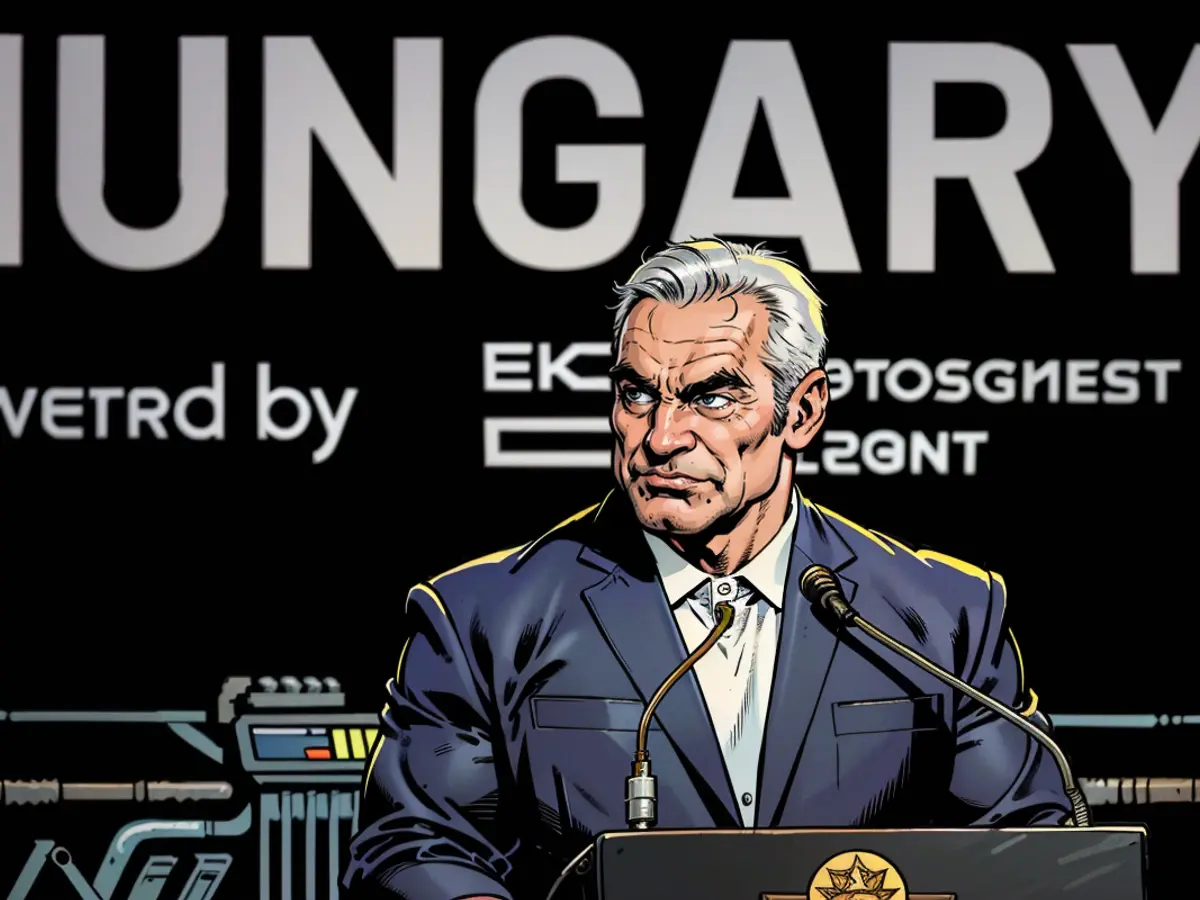Authoritarian Rule's Consequences Under Orban's Leadership
Troublemaker on the EU scene, Viktor Orban, Hungary's Prime Minister and a close ally of President Putin, is set to cause disruption in the EU. Starting July, Orban's government will take over the helm in the EU Council and have the opportunity to disrupt operations, especially in the ongoing Ukraine policy.
In the EU, Orban is labeled as a disruptor, antagonist, and Putin ally. With Hungary set to assume the rotating presidency of the EU Council from June, ministers from Orban's Fidesz party are poised to dictate the agenda for the next six months of meetings with their counterparts in the Council working groups. This move raises concerns among European Parliament representatives, who fear that Budapest might further undermine EU work during their presidency.
Green MEP Daniel Freund demands a travel ban on Orban if his ministers exhibit destructive behavior. He states, "The European Parliament is the heart of European democracy. It's no place for autocrats." Furthermore, individual legislative procedures can be halted during the Hungarian EU Council presidency if there's a conflict of interest.
Contentious situations mainly emerge as a result of EU foreign policy decisions. Time and again, Orban has taken pro-Russian stances at the level of European heads of state and government. His close relationship with President Vladimir Putin is well known. Orban has thwarted aid for Kiev, aligned with Moscow stance in various instances, and even delayed a 50-billion-euro aid package for Ukraine. In some cases, he's relented, but in others, he remains firm. Hungary has successfully secured an exception from the EU embargo on Russian oil.
Hungary can veto sanctions at any moment
Orban's refusal to acknowledge publicly that Russia is engaged in a brutal war of aggression and committing war crimes places the unity of the European stance towards Moscow at stake. Although Orban doesn't hold the power to block legislation during the EU Council presidency, he can delay potential sanctions against Russia by manipulating the meeting agendas during negotiations between Hungarian ministers and their counterparts.
Orban's disruption of European interests doesn't even necessitate the Council presidency. His foreign minister will not take over the presidency of the Council for Foreign Affairs starting from July. This role is held by the EU's High Representative for Foreign and Security Policy. Despite this, Hungary can still file vetoes to prevent sanctions, thanks to the consensus principle.
Unpleasant votes could also bedelayed, according to CSU-European Parliament representative Monika Hohlmeier, Chair of the Budget Control Committee of the European Parliament. Should Hungary not consent to put certain topics on the agenda or do so only under pressure from other member states, it could lead to a challenging situation. In such cases, the responsibility of convincing Hungary and adjusting the agenda and schedule falls on other member states, and more critically, the German government. Without substantial support from Chancellor Scholz in opposing Orban, this task becomes more challenging.
Katarina Barley calls for Hungary to be excluded from the presidency, citing the ongoing Article-7 procedure against Hungary due to suspected breaches of the rule of law. "When a Member State is in breach of the rule of law, it should not be allowed to temporarily chair the Council," she states.
As of now, the Hungarian government has yet to unveil the topics it plans to include in the EU ministerial meetings. Hungarian EU Minister János Bóka mentions that competition, demography, and migration management will be the main focus. In the initial months of the presidency, there'll be less emphasis on laws and more on filling top positions in the EU following the European elections.
In order to contain Orban's government if it becomes obstructive, member states that hold the rotating presidency typically work closely together in trios. Belgium and Spain will support Hungary in setting the agenda for the next 18 months. Additionally, in trilateral legislative procedures between Parliament, Council, and Commission, the Parliament plays an equal role. Critical points cannot simply disappear from the agenda, the Parliament will not hesitate to speak up when faced with misconduct from member states.
Read also:
- The EU Parliament representatives express concern about Budapest potentially further undermining EU work during Hungary's presidency of the EU Council, especially in relation to Ukraine policy.
- During the Hungarian EU Council presidency, individual legislative procedures could be halted if there's a conflict of interest due to Orban's disruptive behavior towards EU foreign policy decisions.
- Orban, as a close ally of President Putin, has thwarted aid for Kiev, aligned with Moscow's stance in various instances, and delayed a 50-billion-euro aid package for Ukraine, placing the unity of the European stance towards Russia at risk.
- Hungary can still file vetoes to prevent sanctions against Russia during the Hungarian EU Council presidency, thanks to the consensus principle, even though the Council presidency for Foreign Affairs is held by the EU's High Representative for Foreign and Security Policy.
- Katarina Barley calls for Hungary to be excluded from the presidency due to the ongoing Article-7 procedure against Hungary due to suspected breaches of the rule of law, stating that a Member State in breach of the rule of law should not be allowed to temporarily chair the Council.








